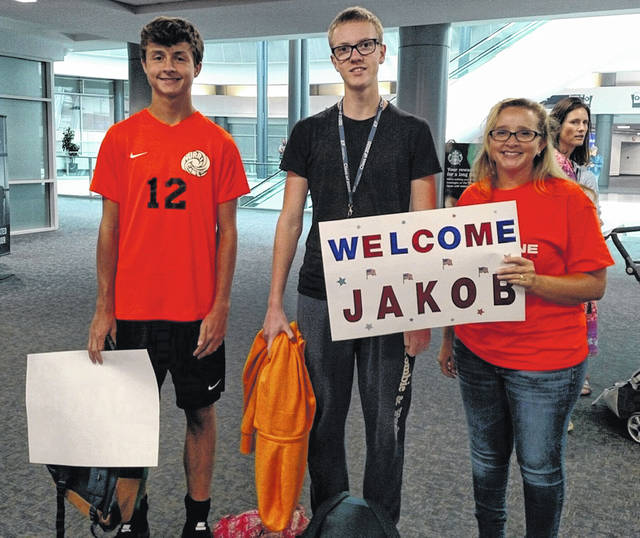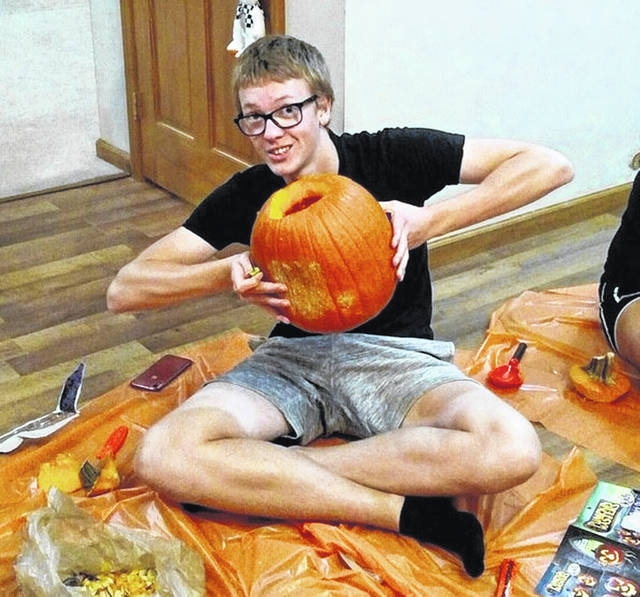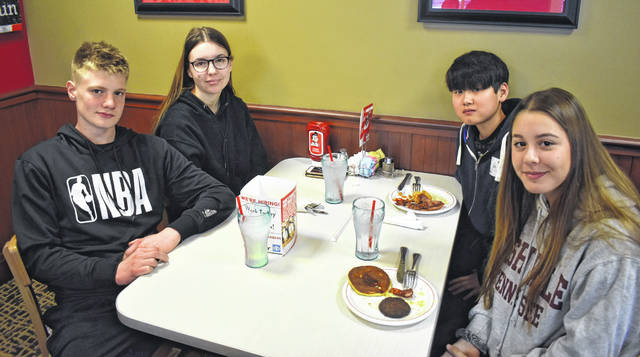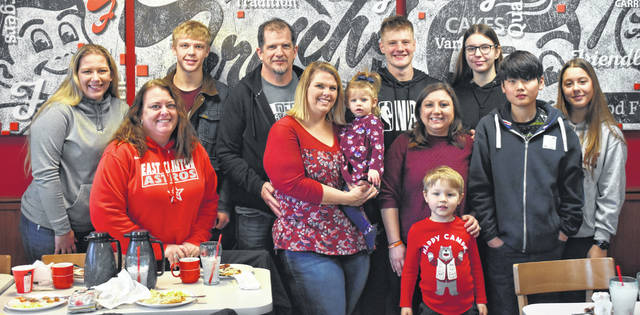



WILMINGTON — New adventures and broadened horizons are being experienced here by both international students and their host families.
Lasse Hoffman of Germany, Laura Curdie of Denmark and Hyeonun “San” Jeong have been attending East Clinton High School. Candela Gomez Estrada Berrouet from Spain and Jakob Lindeselt of Sweden have been going to Wilmington High School.
During their six months in the USA, the group describes their experience here as different.
“Everything is different,” said Hoffman. “The way people here solve problems and think about stuff. The attitude is completely different compared to my country.”
Hoffman elaborated by saying in Germany they’ll mention or point out a problem, while here in America we’re more encouraging about it.
“Here you’ll say ‘Oh you did a good job there! That’s OK, you’ll do better next time!’”
Curdie noticed how people are more sociable in the states compared to Denmark.
“In Denmark, we don’t talk to strangers. That’s just weird,” he said. “While over here people will be like, ‘Hey, how are you?’ If you talk to a stranger at a train station in Denmark, people will just look at you like, ‘Don’t talk to me,’” said Curdie.
Lindeselt — living with the Bradshaw family in Martinsville — noticed how being in America forced him, in a way, to be more sociable and to communicate.
“I’ve learned a lot just from meeting a whole lot of new people,” he said. “I’ve been to four different schools in Sweden, which is normal. But here you go to the same school your entire life, basically, until college. So, everyone knows each other already, and so, I’m coming in as kind of an outsider. That’s taught me a lot of social skills.”
In Spain, Berrouet pointed out how, in the U.S., most friends and sports activities are through the schools, while in Spain they’re separate entities. Jeong has also been enjoying his time playing sports at the school.
The students, along with others in Ohio, were brought here by either a company called International Student Exchange (ISE) or the EF exchange program.
Over a 9-month span the students, with the help of their host families, get an inside look at American culture. The students must also complete five hours of community service, called Project Help.
Hoffman has spent one full Saturday shopping for families who needed extra help with the Christmas season. Jeong spent a lot of time working in his church’s nursery, and Berrouet helped a local farmer by cleaning stables.
Hoffman and Jeong have enjoyed playing basketball, while Berrouet has enjoyed swimming. Lindeselt is looking forward to playing tennis in the spring
But there is one aspect of the U.S. the students seem to like better in their country — food.
“You can really get tired of all this junk food,” said Curdie. “In Denmark, I feel like we don’t eat like this every day.”
Berrouet feels that there is a lot of fried food. “I couldn’t eat this every day,” said Berrouet.
Hoffman, though, likes the food a lot; he said he could eat fast food every day.
Food has also been a way for the students to share a little bit of their country.
Curdie made her host family — the Luttrells — rice pudding, a Christmas dish in Denmark. Berrouet shared some food, and how they’d serve it in Spain, with Bev and Steve McCarty, her host family. Jeong shared spicy ramen noodles from South Korea with his host family — the Pucketts — and friends.
“I shared it with some of my friends and they almost cried,” said Jeong.
Christi Simmons, whose family has been hosting Hoffman, said, “They are model students who strive to do their best. They are soaking in as much as they can in a short period of time.”
She’s not the only one who feels this way. Matt and Beth Puckett have had quite the experience with Jeong. They even got to experience spicy ramen noodles from South Korea that Jeong’s family sent over.
The students are all here on a J-1 culture visa, not on an education visa. They must have recommendations from teachers in their home county and must also pass written, oral and reading English tests.
Being a host family is purely voluntary. Families do not get paid for hosting a student; however, they will get a tax write-off.
Families are only required to provide three essential items: three meals a day, a stable home, and a room for the student (with an actual mattress).
They do not have to have children in their home, nor do they have to be a stay-at-home parent.
However, the trend of hosting a student is on the downfall, according to Simmons.
“Due to recent world events, families have become more leery about bringing in a foreign exchange student,” she said.
All students in the program are rigorously screened and are vetted before entering the home. They must adhere to strict rules and their field agent will meet with the student and the family at least once a month.
The students could be dismissed and lose their visas for a variety of reasons — including consuming alcohol, drugs or tobacco, displaying disrespectful or inappropriate behavior, failing srades or expulsion from school, traveling that is not OK with the host family or school, and being arrested or cited by law enforcement.
Despite the amount of work and attention needed, the host families and students would do it again, and encourage others to do.
It’s not just the students who’ve been broadening their minds; the host families themselves have been as well.
Curdie and Berrouet do give a warning to those who prone to homesickness. If that’s the case for them, then the program probably isn’t for them.
Lindeselt feels like he’s stepped out of his comfort zone and experienced something unique.
“I did something that very few people have done and I think that’s going to help me out a lot in general when I get back to Sweden,” said Lindeselt.
“Watching our boys grow up with a big brother from another country is amazing. We have learned so much in this journey and cannot wait to host again,” said Christi Simmons. “I have fallen in love with our student as if he was my own child.
“I know for a fact I will cry like a baby when I put him on his plane to head back to his home country.”





